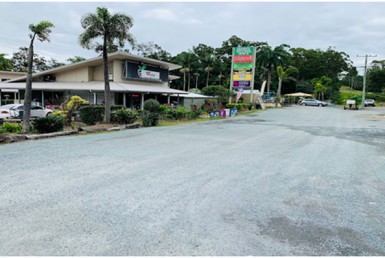Checklist: Considering buying a business
Assessing the advantages and disadvantages of buying an existing business will help you to avoid a costly financial mistake. Ensure you have the right skills and research completed before committing yourself and your money to a business.
Consider the advantages and disadvantages
Buying an existing business means you’re buying the owner’s assets, stock and customer loyalty. Financiers lend more readily to an existing business with a trading record.It can reduce the risk of failure, but a common problem is the departure of the owner may negatively affect the business and so the current takings cannot be guaranteed.
Potential issues that you also need to consider include:
- paying existing staff entitlements such as long service leave payments
- dealing with a bad image which is difficult to change
- the business being overpriced or not be easily transferable
- inadequate or old premises, plant or equipment
- difficulties in getting the lease assigned with existing entitlements, with the landlord only prepared to offer a new lease.
Research your industry
Research your industry to identify your customers, your competitors and your industry. When you are planning to buy a business, make sure you use other tools such as the ATO’s Small business benchmarks to help you assess how the industry is performing overall.
Value your potential purchase
Do your financial due diligence – while the owner may set his sale price based on factors such as projections on future earnings or benchmarking against other similar businesses, you need to independently collect and check financial information about the business before buying it. Doing sufficient research also means that you’re buying it at the right price. A CPA survey says that a surprising 80% of buyers who did financial due diligence with an accountant avoided paying too much.
Get detailed professional valuations of all assets and liabilities of the business you want to buy to reduce the risk of making a bad purchase.
An objective assessment of total worth will include a valuation of:
Goodwill
The reputation, viability and potential of a business. Goodwill should be assessed as part of the overall investment in a business that needs to be sufficiently profitable to at least cover the capital repayments after tax and provide a fair income for the new proprietor.
Assets
Tangible assets include buildings, land, equipment, stock, fixtures and fittings. They are usually with an estimation of how they have depreciated, or an estimation of their resale value. Intangible assets includes intellectual property and goodwill e.g. a strong client list.
Work in progress
Existing contracts a purchaser will get from buying the business.
Liabilities of the seller
A purchaser may have to take on responsibility for employee entitlements such as holiday and long-service leave. These entitlements would have to be assessed and deducted from the purchase price. The liabilities of the seller are not normally calculated in a sale price and a purchaser would not normally take over debtors, creditors, liability for future orders.
For businesses costing under $350,000, a Vendor’s Statement (or Section 52 Statement) must also be provided by a seller to a prospective buyer.
Business profits
In buying a business, you need to make sure it will continue to make a profit by checking the following.
Commercial life of the business
The value of a business fluctuates throughout its commercial life. For instance, changes in the economy, the need to replace failing equipment and cancelled contracts will all impact on the viability of the business and its ability to remain profitable. A business can’t always be resold later for the same amount of money e.g. if you’re running a corner store and a large supermarket chain opens down the road this will devalue your business.
Opportunity costs
The cost of passing up the next best choice when making a decision to invest. This accounts for the purchaser missing the opportunity to get income from other possible investments e.g. earning an income, putting the money into a term deposi.
Work out your finances
Find out how much it costs to take over the business. Seek out possible sources of financing and speak to your financiers on loan or investment options.



